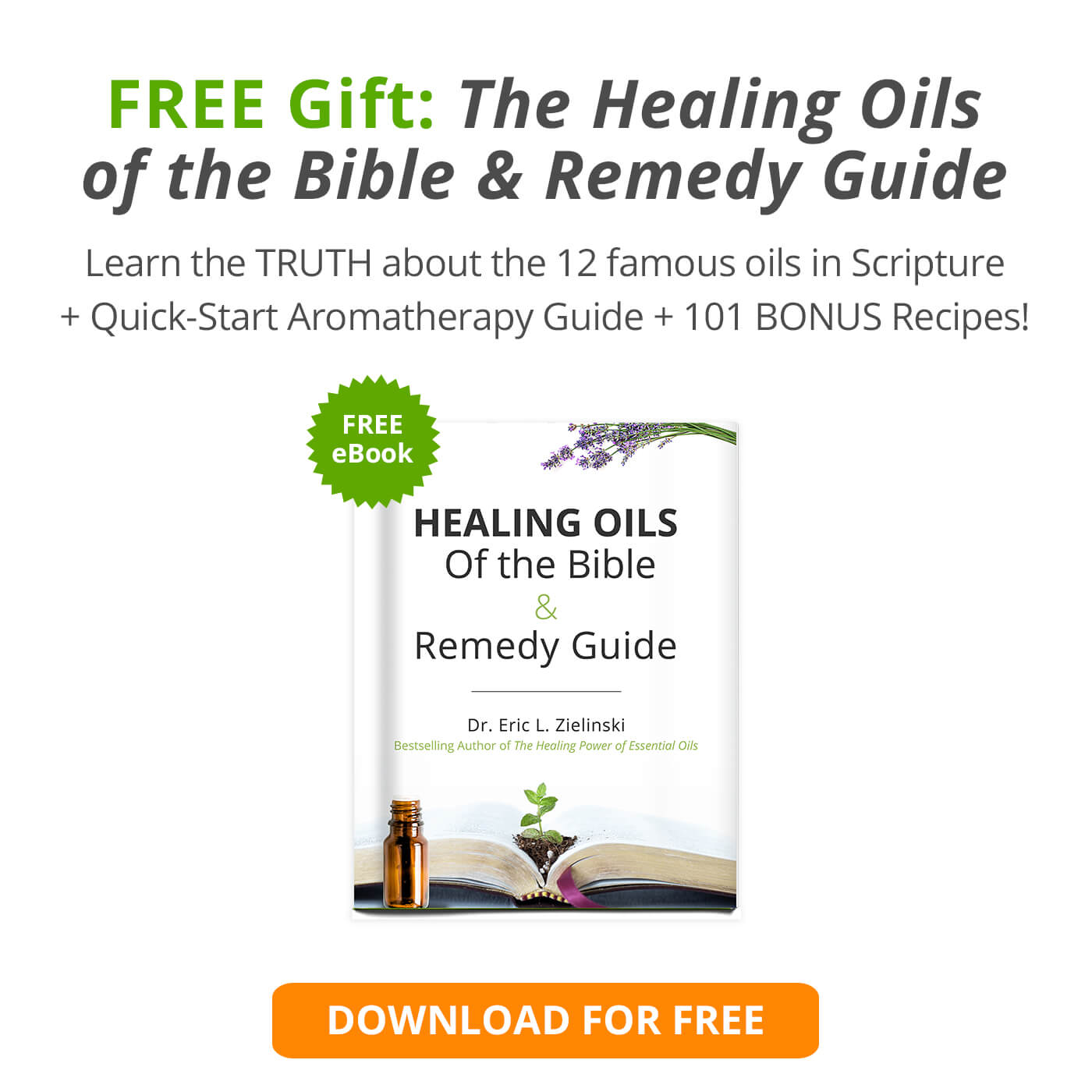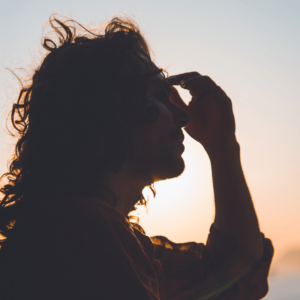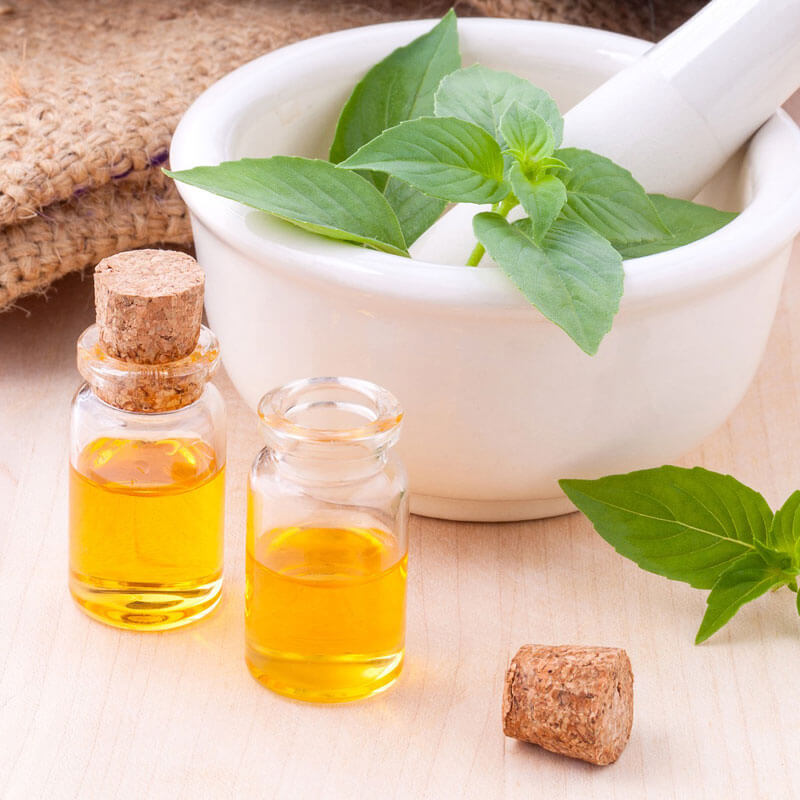It’s easy to get lost in all this bad news, so it’s important to sift through the data to get to the truth. Mental illness is not new, but drugs are. Consistently, people have used natural remedies such as essential oils for anxiety, and we need to get back to our roots before anxiety disorders affect us all!
Our culture has gotten so crazy, busy and hectic that anxiety disorders are becoming “normal.” Surprisingly, research confirms that in the United States, anxiety disorders are the most common mental illness, affecting nearly 20% of the adult population! (1)
Table of Contents
The Grass Is Not So Green On The Other Side
According to a recent Gallup poll, more than 15% of the world’s adults desire to relocate permanently to another country. This translates to roughly 700 million people, and the United States is the #1 most desired country, representing nearly 25% (more than 165 million adults).
As people in developing countries wish for the convenience, affluence and “happiness” that Western countries supposedly offer, most are hit squarely in the stomach by the reality that the “grass is not always greener” on the other side of the pond. This is particularly true regarding mental illness and mood disorders. Moving to America does not guarantee happiness.
The key point is that our fast culture is not “working.” We need to slow things down, to calm the mind and body. More than ever, people need to escape the stress of life and create consistent, private sanctuaries where they can chill out and relax. Even meditating on Bible verses for stress and anxiety can be helpful. But there’s more than just meditation to help – we have access to a natural way of relieving many anxiety symptoms.
Picture an essential oil bottle with a cape flying in the air on its way to save a city under attack by aliens. Ok, maybe a little bit of a stretch, but that’s how tens of thousands of folks view this precious natural solution of using essential oils for anxiety.
Dangerous Medical Approach to Anxiety
Anxiety comes in all shapes and sizes and there are unique medical treatments for each. (2) The medical community generally agrees that medication is useful to help alleviate generalized anxiety disorder symptoms. Some of these drugs focus on prevention whereas others are designed to directly treat the condition itself. The dilemma is that all these drugs carry with them significant side effects.
Below is a breakdown of the prescribed drugs that are frequently taken for the most common types of anxiety: (3)
- Performance/Social Anxiety – antihistamines (hydroxyzine) and beta-blockers (propranolol).
- Chronic Anxiety – antidepressants like selective serotonin reuptake inhibitors (SSRIs) Celexa, Lexapro, Paxil, Prozac and Zoloft.
- Acute Anxiety (panic attacks) – Benzodiazepines Ativan, Valium, Librium, Xanax, and Klonopin.
Benzodiazepines are particularly problematic. Known as sedative hypnotic anxiolytics (aka “depressants” that reduce anxiety), they significantly reduce brain activity at a high cost.
Hypnotic use has been associated with a 35% increase in developing cancer, and patients receiving hypnotics are more than 4 times likely to die than people who are not on the drugs. It appears that the dosage plays a key role, but “even patients prescribed fewer than 18 hypnotic doses per year experienced increased mortality, with greater mortality associated with greater dosage prescribed.” (3)
In addition to the increased cancer risk, the problem with prescribing sedative-hypnotic drugs such as benzodiazepine is two-fold: benzodiazepines are highly addictive and interact with neurotransmitters like GABA.
It is interesting to note that benzodiazepines are rarely the sole drug of abuse, because people usually combine them with other drugs to increase the effect. It is highly common for drug abusers to add in pain killers like opioids to boost the euphoric effects. Among them, Valium and Xanax are the most popular.
After several months of regular use, a person is likely to develop addiction, tolerance and significant withdrawal symptoms. If you or a loved one are currently taking benzodiazepines, note that they don’t seem to be addictive within the first few months of use, nor does tolerance or difficulties in stopping the medication settle in until later.
Benzodiazepines are being grossly over-prescribed. According to data published last year by the Journal of the American Medical Association: (4)
- More than 5% of US adults aged 18 to 80 years take benzodiazepines.
- The percentage who use benzodiazepines increases with age from 2.6% (18-35 years) to 5.4% (36-50 years) to 7.4% (51-64 years) to 8.7% (65-80 years).
- The prevalence of women users is nearly twice as much as men.
- Long-term use categorized by age is; 14.7% (18-35 years) to 31.4% (65-80 years).
- Interestingly, the number of prescriptions from a psychiatrist decreases with age – 15.0% (18-35 years) to 5.7% (65-80 years).
- “In all age groups, roughly one-quarter of individuals receiving benzodiazepine involved long-acting benzodiazepine use.”
“Essential Oils Saved My Life”
I’ll never forget one of the first essential oil classes I ever taught. About mid-way through my lecture, a woman in the back of the audience raised her hand to signal me to call on her. When I asked what question she had about the blend I was discussing, she surprised me because she didn’t have a question. She had a statement!
“That blend helped me get off of my anxiety meds 5 years ago,” she said. “Essential oils saved my life!”
I don’t even remember the blend that I was talking about. And, you know what? It doesn’t matter. What’s important is that this precious soul found something that worked for her – something that literally gave this lady her life back and, 5 years later, she was still attending Essential Oils 101 classes to learn more!
Can this be your story? I hope so…
How Essential Oils for Anxiety Can Help
Essential oils for anxiety are transdermal which means they penetrate the skin and work on the body’s physiology in a variety of ways. This means that you can effect your body’s biochemistry when you apply essential oils for anxiety topically as well as when you take them internally or inhale them via diffusion.
Research suggests that topical applications may actually be one of the most effective methods for people with anxiety disorders as the chemical components of lavender have been shown to enter the blood stream within 5 minutes of massaging the oil on the skin. The calming and relaxing effects of lavender essential oil have a one-two punch when applied topically because of the direct aromatic benefit on the brain when the volatile organic compounds are inhaled and pass through the skin! (5)
The 1992 study (5) also uncovered that maximum concentration levels were observed within 20 minutes. Don’t worry, the sedative properties don’t last forever. Within 90 minutes most of the lavender was eliminated.
Unlike common sleep aids and benzodiazepines, there are virtually no side effects when people use aromatic essential oils to help with anxiety. In fact, oils can possibly help get people off of drugs!
A clinical study dating back to 1995, showed that sleep duration significantly decreases in older patients who are dependent on benzodiazepines. However, once lavender essential oil aromatherapy was introduced into their life, their sleep quality and duration can be restored to previous levels, in spite of not being on the drugs. According to the researchers who wrote and conducted this landmark research, “This study suggested that ambient lavender oil might be used as a temporary relief from continued medication for insomnia and reduces the side-effects of these drugs.” (6,7)
A note of caution, never take yourself off of benzodiazepines without medical guidance because the side effects can be quite severe.
The Best Essential Oils for Anxiety
When you start to search the research studies on the anxiolytic (anti-anxiety) effects of essential oils, lavender usually comes up in every search. Does this mean that lavender should be the go-to oil for everyone battling panic and stress? Not necessarily.
Tucked away in the collection of lavender studies are golden nuggets suggesting that other oils can also have a profound effect on anxiety. In 2013, for example, the journal Evidence-Based Complementary and Alternative Medicine published an article that evaluated the effects that aromatherapy had on anxiety, sleep quality and vital signs within an intensive care unit (ICU) patient population. (8)
The researchers blended lavender, roman chamomile, and neroli with a 6 : 2 : 0.5 ratio and discovered that this aromatherapy (AT) strategy “significantly” lowered anxiety and improved sleep quality compared with conventional nursing intervention. Interestingly, blood pressure was also lower in the AT group. This should give hope to people with cardiovascular disease-related insomnia as the connection between the two is well-established in the literature. (9)
A systematic review of the literature suggests that these oils are the most potent in managing anxiety: (10)
- Angelica archangelica rad. (angelica)
- Cistus ladaniferus (labdanum)
- Citrus aurantium var. amara fol. (petitgrain bigarade)
- Citrus aurantium var. amara per. (orange bigarade)
- Citrus bergamia (bergamot)
- Citrus sinensis (sweet orange)
- Cymbopogon martinii (palmarosa)
- Eucalyptus staigeriana (lemon-scented ironbark)
- Lavandula angustifolia (lavender)
- Litsea cubeba (may chang)
- Ocimum basilicum (basil)
- Origanum majorana (sweet marjoram)
- Pelargonium graveolens (geranium)
- Pogostemon patchouli (patchouli)
- Valeriana officinalis (valerian)
Aromatic and topical use of these oils during an anxiety attack or particularly stressful moments can do wonders!
These, however, aren’t the only oils that can help with anxiety. There are other studies suggesting that the following oils also have significant calming effects: clary sage, lemon, roman chamomile, rose, rose-scented geranium, sandalwood and ylang ylang. (11,12)
Essentially, any natural therapy that calms your mind and body helps with anti-anxiety. A good rule of thumb is to stick to whatever is working, and always listen to your body. What works for you will not necessarily work for your friends and family. We are all biochemically unique and we need to find just that right protocol for us. So be on the lookout for your “personal blend.”
The Anxiety, Depression & Sleep Connection
It is important to remember that anxiety, depression and sleep disorders are all inter-connected. They are all causes and effects of each other, which can put someone into a downward spiral fast. Sadly, once the cycle starts, it can be challenging to stop. (13)
This is why you might want to consider using some of the essential oils that are traditionally used for insomnia and sleep disturbances in your anti-anxiety protocols. You’ll notice that several of the below oils are repeated from the list above, which suggests that these oils are particularly helpful: (10)
- Angelica archangelica rad. (angelica)
- Cananga odorata (ylang ylang)
- Chamaemelum nobile (Roman chamomile)
- Citrus aurantium var. amara (neroli bigarade)
- Cistus ladaniferus (labdanum)
- Citrus bergamia (bergamot)
- limon (lemon)
- Citrus reticulata (mandarin)
- Citrus sinensis (sweet orange)
- Cuminum cyminum (cumin)
- Juniperus communis fruct. (juniper berry)
- Lavandula angustifolia (lavender)
- Litsea cubeba (may chang)
- Melissa officinalis (lemon balm)
- Myrtus communis (myrtle)
- Ocimum basilicum (basil)
- Origanum majorana (sweet marjoram)
- Ravensara aromatica (ravensara)
- Thymus vulgaris ct. geraniol, ct. linalool (sweet thyme)
- Valeriana officinalis (valerian)
Using Essential Oils to Combat Anxiety & Mood Disorders
There are several natural therapies that can help quiet your mind and calm your anxiety. Let’s discuss some useful applications and essential oil combinations.
The easiest and arguably the most effective approach to use essential oils for anxiety is to put a few drops of any of these oils above (or a homemade blend) in your diffuser before you go to bed. Some nice diffuser blends you might want to try are:
- 2 drops ylang ylang, 1 drop bergamot, 1 drop lavender, 1 drop sweet marjoram, 1 drop roman chamomile and 1 drop valerian
- 2 drops lavender, 1 drop clary sage, 1 drop of ylang ylang and 1 drop vanilla
- 2 drops geranium, 1 drop sweet marjoram, 1 drop of patchouli and 1 drop sweet orange
- 2 drops roman chamomile, 1 drop rose and 1 drop palmarosa
Topical Anti-Anxiety Applications
Another effective strategy is to simply apply these key oils over certain parts of the body – particularly the trigger points – like the bottoms of the feet, on the wrists, behind the knees, behind the ears on the mastoid bone or on the back of the neck.
Be sure to use with a good carrier oil, and by creating a 2-3% dilution is considered safe by most experts. For the blends above, limit the first one containing Ylang Ylang to a 2% dilution, and use FCF bergamot instead of the cold-pressed if used topically.
To create your dilutions: 2% dilution: 12 drops of EO per oz of carrier oil (2% of 600 drops is 12)
If working with tablespoons is more comfortable for you, 1 oz. = 2 tablespoons. So, there are 300 drops of EO in a tablespoon. Thus a 2% dilution: 6 drops of EO per tablespoon of carrier oil (2% of 300 drops is 6)
Another great trick is to make a Homemade Anxiety-Relief Spray. Using some of the same oils above:
- Add 20 drops of essential oils into a 4 oz glass spray bottle
- Fill ⅓ of the way with 190 proof alcohol
- Fill the remaining bottle with water
- Stir well, and store up to one month (the alcohol will help with preservation in this case).
- Mist into the air and take in a deep breath during panic attacks, stressful moments or when anxiety settles in.
Other Anxiety-Relief Hacks – try making your favorite homemade recipes with these calming essential oils for anxiety. It’s a great way to calm the body and the mind. Here are some recipes for you – remember, just use the oils and blends above to give you the desired result:
- Detox bath
- Foaming hand soap
- Hand cream
- Hand sanitizer
- Healing skin serum
- Liquid hand soap
- Lotion bar
- Laundry detergent
- Sugar bath scrub
- http://www.nimh.nih.gov/health/statistics/prevalence/any-anxiety-disorder-among-adults.shtml
- http://www.webmd.com/anxiety-panic/understanding-anxiety-treatment
- http://bmjopen.bmj.com/content/2/1/e000850.full
- http://archpsyc.jamanetwork.com/article.aspx?articleid=2019955
- http://journal.scconline.org/abstracts/cc1992/cc043n01/p00049-p00054.html
- http://www.ncbi.nlm.nih.gov/pubmed/7658836
- http://www.ncbi.nlm.nih.gov/pmc/articles/PMC3612440/#B29
- http://www.ncbi.nlm.nih.gov/pmc/articles/PMC3588400/
- http://cpr.sagepub.com/content/21/1/57.abstract
- http://www.sciencedirect.com/science/article/pii/S2221169115001033
- http://www.ncbi.nlm.nih.gov/pubmed/16807875
- http://www.ncbi.nlm.nih.gov/pubmed/19831048
- http://www.adaa.org/understanding-anxiety/related-illnesses/sleep-disorders








